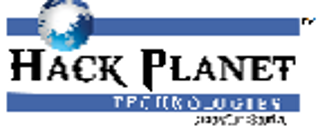Null Session Port Number 139 Vulnerability Of Windows Default Shares
Do you like this story?
The Server Message Block (SMB) protocol, also known as the Common Internet File System (CIFS), enables file sharing over networks. Improper configuration can expose critical system files or give full file system access to any hostile party connected to the Internet. Many computer owners unknowingly open their systems to hackers when they try to improve convenience for coworkers and outside researchers by making their drives readable and writeable by network users. Administrators of a government computer site used for software development for mission planning made their files world readable, so that people at a different government facility could get easy access. Within two days, attackers had discovered the open file shares and had stolen the mission planning software.
Enabling file sharing on Windows machines makes them vulnerable to both information theft and certain types of quick-moving viruses. Macintosh and Unix computers are also vulnerable to file sharing exploits if users enable file sharing.
The SMB mechanisms that permit Windows File Sharing may also be used by attackers to obtain sensitive system information from Windows systems. User and Group information (usernames, last logon dates, password policy, RAS information), system information, and certain Registry keys may all be accessed via a “null session” connection to the NetBIOS Session Service. This information is useful to hackers because it helps them mount a password guessing or brute force password attack against the Windows target.
CAN-1999-0520, CAN-1999-0621, CAN-2000-1079
The Microsoft Personal Security Advisor, will report whether you are vulnerable to SMB exploits, and can also fix the problem. Since it runs locally, its results will always be reliable. It is available at: http://www.microsoft.com/technet/security/tools/mpsa.asp
Enabling file sharing on Windows machines makes them vulnerable to both information theft and certain types of quick-moving viruses. Macintosh and Unix computers are also vulnerable to file sharing exploits if users enable file sharing.
The SMB mechanisms that permit Windows File Sharing may also be used by attackers to obtain sensitive system information from Windows systems. User and Group information (usernames, last logon dates, password policy, RAS information), system information, and certain Registry keys may all be accessed via a “null session” connection to the NetBIOS Session Service. This information is useful to hackers because it helps them mount a password guessing or brute force password attack against the Windows target.
Systems impacted:
Microsoft Windows NT and Windows 2000 systemsCVE entries:
CVE-1999-0366, CVE-2000-0222, CVE-2000-0979, CAN-1999-0518, CAN-1999-0519,CAN-1999-0520, CAN-1999-0621, CAN-2000-1079
How to determine if you are vulnerable:
A quick, free, and secure test for the presence of SMB file sharing and its related vulnerabilities, effective for machines running any Windows operating system, is available at the Gibson Research Corporation web site at http://grc.com/. Click the “ShieldsUP” icon to receive a real-time appraisal of any system's SMB exposure. Detailed instructions are available to help Microsoft Windows users deal with SMB vulnerabilities. Note that if you are connected over a network where some intermediate device blocks SMB, the ShieldsUP tool will report that you are not vulnerable when, in fact, you are. This is the case, for example, for users on a cable modem where the provider is blocking SMB into the cable modem network. ShieldsUP will report that you are not vulnerable. However, the 4,000 or so other people on your cable modem link can still exploit this vulnerability.The Microsoft Personal Security Advisor, will report whether you are vulnerable to SMB exploits, and can also fix the problem. Since it runs locally, its results will always be reliable. It is available at: http://www.microsoft.com/technet/security/tools/mpsa.asp
How to protect against it:
Take the following steps to defend against unprotected shares:- When sharing data, ensure only required directories are shared.
- For added security, allow sharing only to specific IP addresses because DNS names can be spoofed.
- For Windows systems (both NT and 2000), use file system permission to ensure that the permissions on the shared directories allow access only to those people who require access.
- For Windows systems, prevent anonymous enumeration of users, groups, system configuration and registry keys via the “null session” connection. See item W5 for more information
- Block inbound connections to the NetBIOS Session Service (tcp 139) and Microsoft CIFS (TCP/UDP 445) at the router or the host.
- Consider implementing the RestrictAnonymous registry key for Internet-connected hosts in standalone or non-trusted domain environments. For more information see the following web pages:
- Windows NT 4.0: http://support.microsoft.com/support/kb/articles/Q143/4/74.asp
- Windows 2000: http://support.microsoft.com/support/kb/articles/Q246/2/61.ASP
Hopes You guys enjoyed the article, Enjoy Hacking Enjoy Hackton.
Subscribe to:
Post Comments (Atom)




1 Responses to “Null Session Port Number 139 Vulnerability Of Windows Default Shares”
October 22, 2010 at 8:35 PM
I just signed up to your blogs rss feed. Will you post more on this subject?
Post a Comment